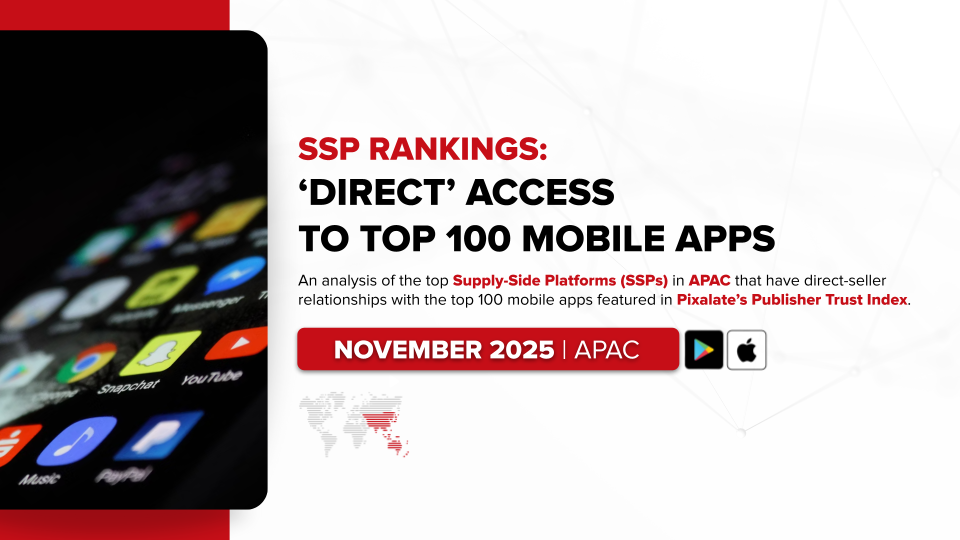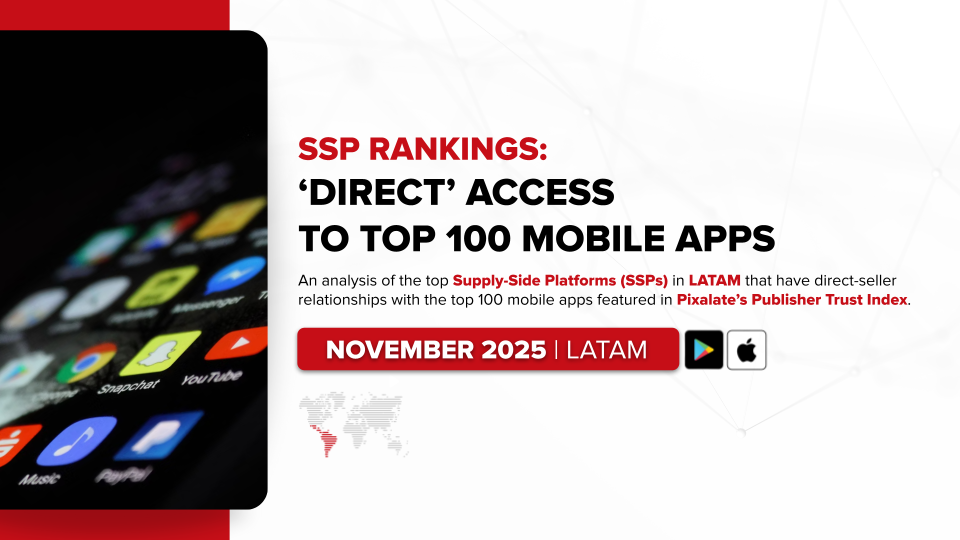Want to see the 34 apps? Download the list here.

The Office of Foreign Assets Control (“OFAC”) from the U.S. Department of the Treasury (“U.S Treasury”) maintains lists of sanctioned countries, entities and individuals. People and companies in the U.S. (including U.S. branches or subsidiaries of foreign entities) doing business overseas must have robust compliance policies and controls in place to ensure they do not transact with any OFAC-sanctioned countries, entities or individuals. For Russian companies, much of the financial industry is sanctioned currently in response to Russia’s invasion of Ukraine.
On February 24, 2022, OFAC updated its Russian-related designations and included Sberbank to its non-SDN menu-based sanctions list due to OFAC’s assertion that Sberbank is “furthering specified harmful foreign activities of the Russian Federation.” Additionally, OFAC added certain Sberbank subsidiaries to its correspondent account or payable-through account (CAPTA) list of sanctioned companies. These sanctions fall under certain directives in Executive Order 14024. According to the U.S. Treasury, “the Russia-related CAPTA Directive prohibits any transaction that evades or avoids … or attempts to violate any of the prohibitions of [the] directive….”
Why advertisers should care
As more intergovernmental organizations – and countries around the world – impose sanctions against Russian individuals and entities, a question advertisers now have to ask themselves is whether such advertising spend is funding sanctioned individuals or entities.
What is Sberbank
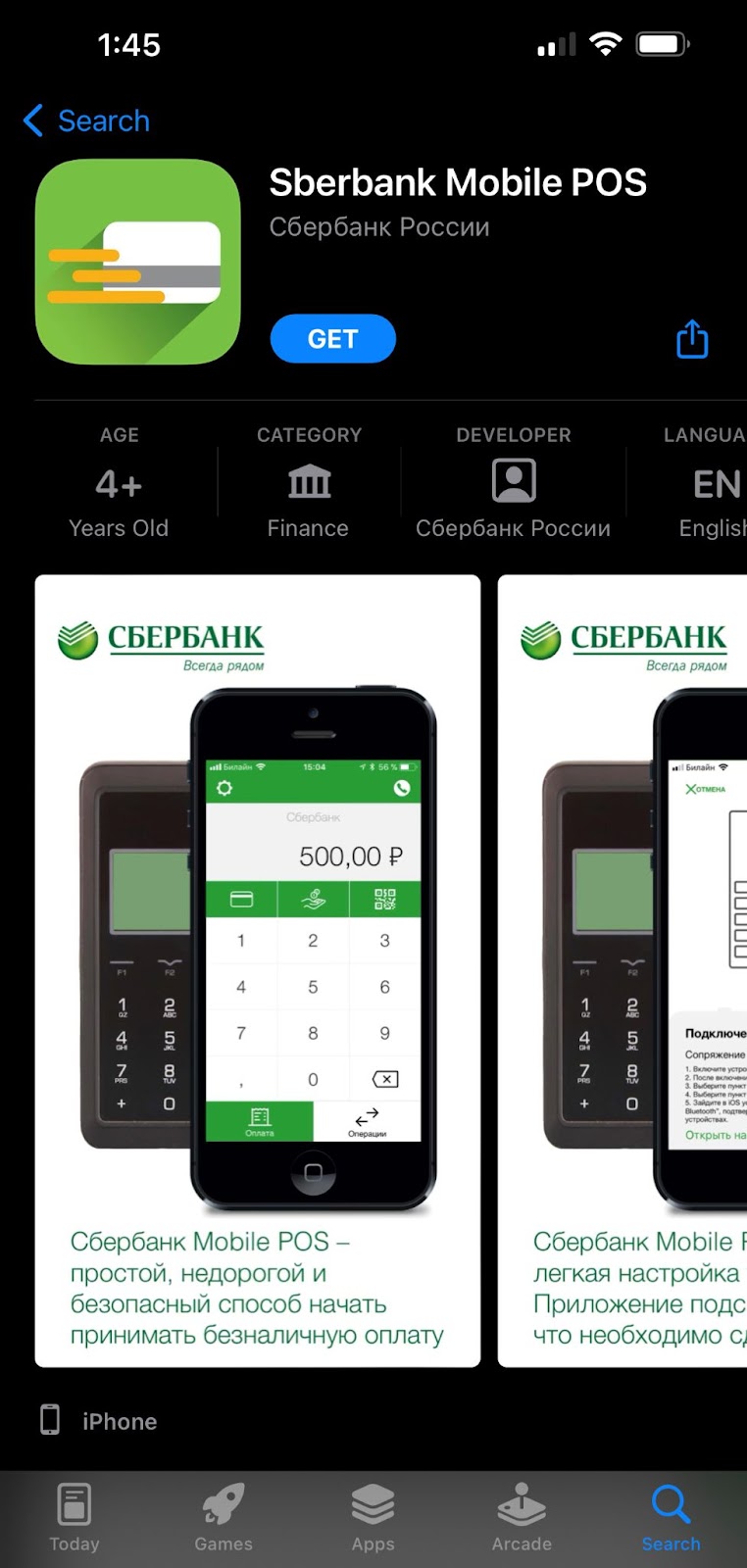
Sberbank is a state-owned Russian banking and financial services company. It is Russia’s largest financial institution, according to the U.S. Treasury.
The U.S Treasury stated that it has taken “significant and unprecedented action to respond to Russia’s further invasion of Ukraine by imposing severe economic costs,” including sanctions against Sberbank and its subsidiaries.
The U.S Treasury wrote:
On a daily basis, Russian financial institutions conduct about $46 billion worth of foreign exchange transactions globally, 80 percent of which are in U.S. dollars. The vast majority of those transactions will now be disrupted. By cutting off Russia’s two largest banks — which combined make up more than half of the total banking system in Russia by asset value — from processing payments through the U.S. financial system. The Russian financial institutions subject to today’s action can no longer benefit from the remarkable reach, efficiency, and security of the U.S. financial system.
34+ Sberbank apps in the Google and Apple app stores
Pixalate has identified at least 34 apps belonging to Sberbank that remain available in the Google Play Store and Apple App Store.
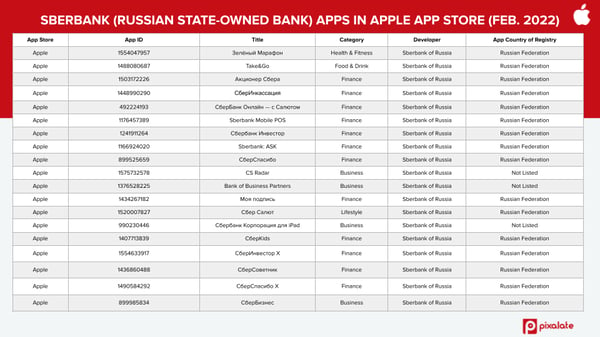
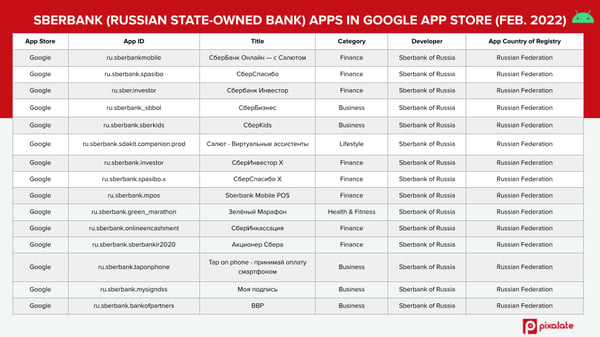
Download a list of these apps for free here. This list includes additional data about the apps, including which device-level permissions they request (such as access to GPS coordinates and camera).

Disclaimer
The content of this blog reflects Pixalate’s opinions with respect to the factors that Pixalate believes can be useful to the digital media industry. Any data shared is grounded in Pixalate’s proprietary technology and analytics, which Pixalate is continuously evaluating and updating. Any references to outside sources should not be construed as endorsements. Pixalate’s opinions are just that, opinions, which means that they are neither facts nor guarantees. It is important to note that the mere fact that an app receives “dangerous permissions” (as defined by Google) does not necessarily mean that such app, or its publisher, is actually exploiting data. Instead, Pixalate is merely rendering an opinion that personal data-related permissions may be suggestive of heightened risks to data subjects.






